Live Forensicator is part of the Black Widow Toolbox, its aim is to assist Forensic Investigators and Incidence responders in carrying out a quick live forensic investigation.
It achieves this by gathering different system information for further review for anomalous behaviour or unexpected data entry, it also looks out for unusual files or activities and points it out to the investigator.
It is paramount to note that this script has no inbuilt intelligence its left for the investigator to analyse the output and decide on a conclusion or decide on carrying out more deeper investigation.
Optional Dependencies
This script is written in powershell for use on windows PCs and Servers.
For additional features it depends on external binaries.
It has a supporting file WINPMEM for taking RAM dumps https://github.com/Velocidex/WinPmem
It also depends on Nirsoft’s BrowserHistoryView for exporting browser history http://www.nirsoft.net/utils/browsing_history_view.html
This script is expected to work out of the box.
winpmem_mini_x64_rc2.exe | BrowsingHistoryView64.exe | BrowsingHistoryView86.exe | etl2pcapng64.exe | etl2pcapng86.exe
Usage
copy the files to the computer
git clone https://github.com/Johnng007/Live-Forensicator.git
Execution
.\Forensicator.ps1
Examples
Basic
.\Forensicator.ps1
Check your Version
.\Forensicator.ps1 -Version
Check for Updates
.\Forensicator.ps1 -Update
Decrypt An Encrypted Artifact
.\Forensicator.ps1 -DECRYPT DECRYPT
Extract Event Logs alongside Basic Usage
.\Forensicator.ps1 -EVTX EVTX
Grab weblogs IIS & Apache
.\Forensicator.ps1 -WEBLOGS WEBLOGS
Run Network Tracing & Capture PCAPNG for 120 secounds
.\Forensicator.ps1 -PCAP PCAP
Extract RAM Dump alongside Basic Usage
.\Forensicator.ps1 -RAM RAM
Check for log4j with the JNDILookup.class
.\Forensicator.ps1 -log4j log4j
Encrypt Artifact after collecting it
.\Forensicator.ps1 -ENCRYPTED ENCRYPTED
Yes of course you can do all
.\Forensicator.ps1 -EVTX EVTX -RAM RAM -log4j log4j -PCAP PCAP -WEBLOGS WEBLOGS
For Unattended Mode on Basic Usage
.\Forensicator.ps1 -OPERATOR “Ebuka John” -CASE 01123 -TITLE “Ransomeware Infected Laptop” -LOCATION Nigeria -DEVICE AZUZ
You can use unattended mode for each of the other parameters
.\Forensicator.ps1 -OPERATOR “Ebuka John” -CASE 01123 -TITLE “Ransomeware Infected Laptop” -LOCATION Nigeria -DEVICE AZUZ -EVTX EVTX -RAM RAM -log4j log4j
Check for files that has similar extensions with ransomeware encrypted files (can take some time to complete)
.\Forensicator.ps1 -RANSOMEWARE RANSOMEWARE
You can compress the Forensicator output immidiately after execution Oneliner
.\Forensicator.ps1 ; Start-Sleep -s 15 ; Compress-Archive -Path “$env:computername” -DestinationPath “C:\inetpub\wwwroot\$env:computername.zip” -Force
Notes
Run the script as an administrator to get value.
The results are outputed in nice looking html files with an index file.
You can find all extracted Artifacts in the script’s working directory.
Forensicator Has the ability to Search through all the folders within a system looking for files with similar extensions as well known Ransomewares, Albeit this search takes long but its helpful if the Alert you recieved is related to a Ransomeware attack, Use the -RANSOMEWARE Parameter to invoke this.
Forensictor now hs the ability to capture network traffic using netsh trace, this is useful when your investigation has to do with asset communicating with known malicious IPs, this way you can parse the pcapng file to wireshark and examine for C&C servers. By Defult i set the capture to take 120secs
Sometimes it may be paramount to maintain the integrity of the Artifacts, where lawyers may argue that it might have been compromised on transit to your lab. Forensicator can now encrypt the Artifact with a unique randomely generated key using AES algorithm, you can specify this by using the -ENCRYPTED parameter. You can decrypt it at will anywhere anytime even with another copy of Forensicator, just keep your key safe. This task is performed by the FileCryptography.psm1 file
What Forensicator Grabs
USER AND ACCOUNT INFORMATION
1. GETS CURRENT USER.
2. SYSTEM DETAILS.
3. USER ACCOUNTS
4. LOGON SESSIONS
5. USER PROFILES
6. ADMINISTRATOR ACCOUNTS
7. LOCAL GROUPS
SYSTEM INFORMATION
1. INSTALLED PROGRAMS.
2. INSTALLED PROGRAMS FROM REGISTERY.
3. ENVIRONMENT VARIABLES
4. SYSTEM INFORMATION
5. OPERATING SYSTEM INFORMATION
6. HOTFIXES
8. WINDOWS DEFENDER STATUS AND DETAILS
NETWORK INFORMATION
1. NETWORK ADAPTER INFORMATION.
2. CURRENT IP CONFIGURATION IPV6 IPV4.
3. CURRENT CONNECTION PROFILES.
4. ASSOCIATED WIFI NETWORKS AND PASSWORDS.
5. ARP CACHES
6. CURRENT TCP CONNECTIONS AND ASSOCIATED PROCESSES
7. DNS CACHE
8. CURRENT FIREWALL RULES
9. ACTIVE SMB SESSIONS (IF ITS A SERVER)
10. ACTIVE SMB SHARES
11. IP ROUTES TO NON LOCAL DESTINATIONS
12. NETWORK ADAPTERS WITH IP ROUTES TO NON LOCAL DESTINATIONS
13. IP ROUTES WITH INFINITE VALID LIFETIME
PROCESSES | SCHEDULED TASK | REGISTRY
1. PROCESSES.
2. STARTUP PROGRAMS
3. SCHEDULED TASK
4. SCHEDULED TASKS AND STATE
5. SERVICES
6. PERSISTANCE IN REGISTRY
OTHER CHECKS
1. LOGICAL DRIVES
2. CONNECTED AND DISCONNECTED WEBCAMS
3. USB DEVICES
4. UPNP DEVICES
5. ALL PREVIOUSLY CONNECTED DRIVES
6. ALL FILES CREATED IN THE LAST 180 DAYS
7. 100 DAYS WORTH OF POWERSHELL HISTORY
8. EXECUTABLES IN DOWNLOADS FOLDER
9. EXECUTABLES IN APPDATA
10. EXECUATBLES IN TEMP
11. EXECUTABLES IN PERFLOGS
12. EXECUTABLES IN THE DOCUMENTS FOLDER
ORTHER REPORTS IN THE HTML INDEX FILE
1. GROUP POLICY REPORT
2. WINPMEM RAM CAPTURE
3. LOG4J
4. IIS LOGS
5. TOMCAT LOGS
6. BROWSING HISTORY OF ALL USERS
7. CHECK FOR FILES THAT HAS SIMILAR EXTENSIONS WITH KNOWN RANSOMEWARE ENCRYPTED FILES
NOTE: THIS CHECK CAN TAKE SOME TIME TO COMPLETE DEPENDING ON THE NUMBER OF DRIVES AND AMOUNT OF FILES.
8. RUNS NETWORK TRACING USING NETSH TRACE & CONVERTS TO PCAPNG FOR FURTHER ANALYSIS


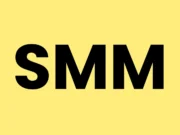


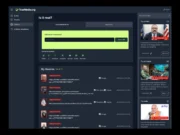

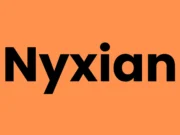

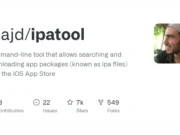
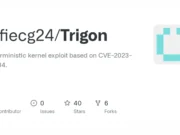
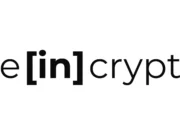
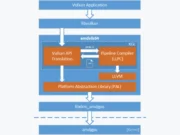
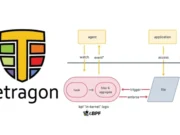
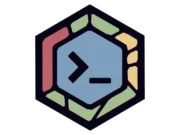


.png)
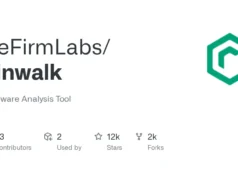
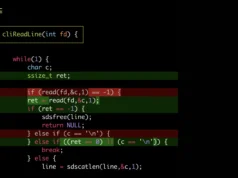

.png)




